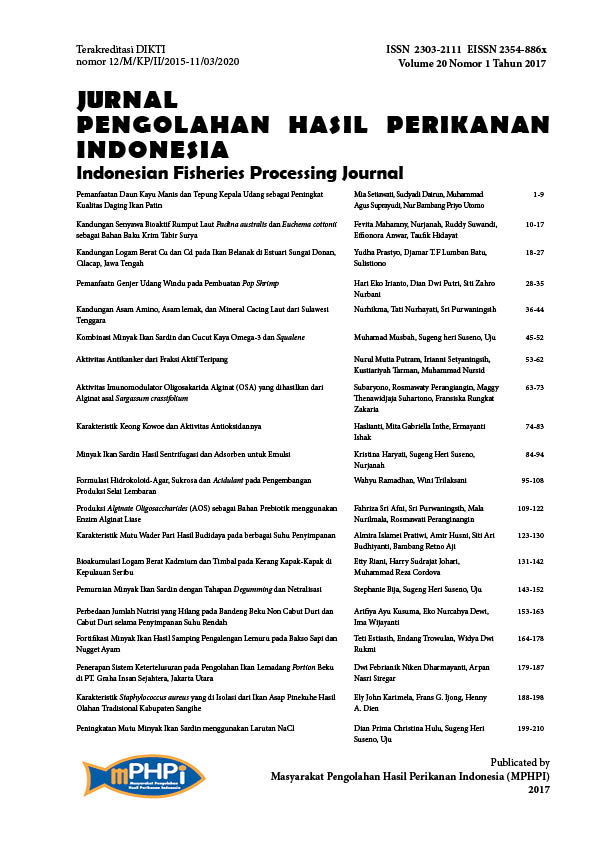Abstract
Sea Cucumber Holothuria atra is one of marine organisms has been used as a new source of novel bioactive compounds. Many of them have been used as the lead compounds in discovery of new anticancer drugs. The objective of this study was to determine the active fractions of sea cucumber (H. atra) which have anticancer activity. H. atra was macerated using ethanol and the extract was freezedried using a freeze dryer. The crude extract was partitioned using n-hexane, ethyl acetate, and methanol-water (3:1:1:1). Cytotoxicity test was performed using HeLa (cervic cancer) cell line and MCF-7 (breast cancer) cell line based on the MTT assay. The crude extract of H. atra showed the best cytotoxic activity against HeLa cells (IC50 = 12.48 µg/mL) and MCF-7 cells (IC50 = 17.90 µg/mL). The toxicity tests showed the IC50 value of the n-hexane fraction, ethyl acetate fraction, and methanol-water fraction against HeLa cells HeLa (IC50 = 76.45 µg/mL; 77.95 µg/mL; 14.27 µg/mL) and MCF-7 cells (IC50 = 58.50 µg/mL; 59.59 µg/mL; 14.33 µg/mL).
Authors
PutramN. M., SetyaningsihI., & TarmanK. (2017). Anticancer Activity from Active Fraction of Sea Cucumber. Jurnal Pengolahan Hasil Perikanan Indonesia, 20(1), 53-62. https://doi.org/10.17844/jphpi.v20i1.16399
Authors who publish with this journal agree to the following terms:
- Authors retain copyright and grant the journal right of first publication with the work simultaneously licensed under a Creative Commons Attribution License that allows others to share the work with an acknowledgement of the work's authorship and initial publication in this journal.
- Authors are able to enter into separate, additional contractual arrangements for the non-exclusive distribution of the journal's published version of the work (e.g., post it to an institutional repository or publish it in a book), with an acknowledgement of its initial publication in this journal.





